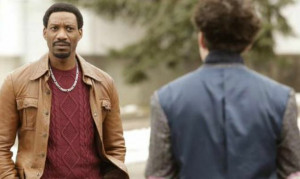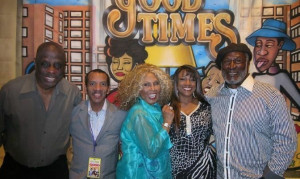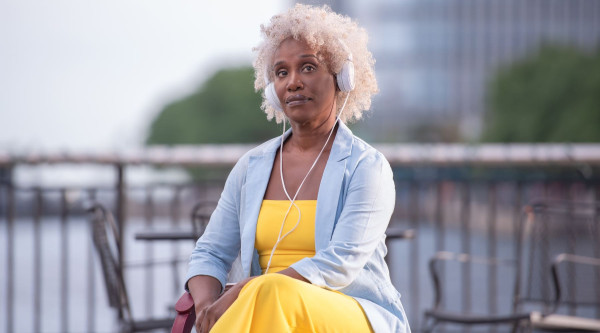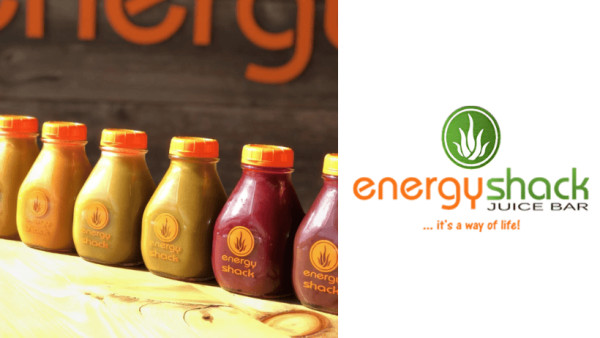What else is there for the first Black Canadian woman to write and co-produce a television show on a major prime time Canadian network to do? Make a radical documentary on Black Mothers and daughters and the complexity of Black maternal love. When Black Mothers Don’t say I love you will be screened this Saturday as part of a Toronto Black Film Festival Movie- talk and Master Class with Trey Anthony.
Tell us more about the background and the theme of the documentary.
The documentary grew out of research I was doing for the actual play of the same title premiering in May at the Factory Theatre. The first person I had interviewed was my grandmother about her story of being separated from my mother when she left for England to work. As I did more research, I put out a call inviting people to be a part of the documentary series. Mothers and daughters in the film talk about being separated in the film. The research project was really something I was doing for myself. At the time I started this my grandmother was terminally ill and I wanted to talk about this experience. I asked her, do you have any regrets? She said her biggest regret was leaving my mother because she felt my mother never forgave her.
The women in the documentary tell their stories in a really authentic way. We could make a film on each woman’s own story. They were really glad for the opportunity to be given the space to tell their stories in a non-judgmental way. It was liberating to tell their stories.
When Black Mothers don’t say I love you? That’s a powerful and striking title. Where did it come from?
It came from my own experience. I feel like my mother started saying I love you in the last couple of years. And my friends with Caribbean mothers also share a similar experience of their mothers not saying I love you… We’re not known to be that type of culture; to be lovey dovey. So, I wanted to explore this. How do our mothers show love in different ways? What comes out in the documentary is a lot of that love is expressed through self-sacrifice. They showed love by leaving so they could create better lives for their daughters. That was one of the reasons they left. My grandmother said if she never went to England my mother wouldn’t have had the life she had, I wouldn’t have had the life I have. That’s love. I wanted to examine the way Black women and Black mothers show our love. We are raised on an idea of what a good mother is. She says I love you. What is the notion of a good mother or bad mother? I think there are different notions of motherhood, different ways mothers show love and the documentary looks at that.
What do you hope audiences will take from this experience?
I think what I really want audiences to take away is that before these women are mothers, they are also just human beings who make mistakes and have regrets. They were wanting to find love and wanting to be good and sometimes they mess up along the way. It was one of the things it took me a long time to realize about my own mother- she was a person. Her identity to me first was that of my mother. That was who I knew her to be. When I was able to make that distinction between her being a mother and a person, I was able to understand her and her choices better. All of the women in the film are trying to do their best with limited resources. We expect them to mother from this unrealistic perfect place. We don’t allow mothers to mess up. We are not forgiving of mothers. When I became an adult, I was able to reflect and heal.
The Black women in the documentary speak with such vulnerability and that isn’t something Black women do very often. The documentary was able to capture that these women were really trying to do their best and what was right. Some will say they messed up and some would say they made the right decision. There is no wrong or right answer. They did what they had to do. Some said they would do it again in the exact same way. So, I wanted to show Black Motherhood in a different light, to show that there is more than one way to say I love you.
You are storyteller across different art forms- stage and screen, how do they compare?
That’s a really good question. Definitely, with film it’s different. This was the first documentary film I have done. You can prepare the questions and present them to the subjects or characters but you have no control over what they are going to say. You have no control over the development of the story. You can hope they will be good characters with good stories but you really don’t know until the camera starts rolling what you’ll get. Then you have all this material that you have to edit to create one cohesive story.
In theatre, what is really great is that I am writing the story. I get to create the conflict and the drama of the story. I decide who people could like or not like. I create the world. In the documentary you don’t have that control. You just don’t know what you’re going to get.
Is this the beginning of Trey the filmmaker?
I will not say no but I will not say yes. I like the idea of exploring a new medium but film is a long process. Especially documentary film. I never thought it through when I started… whether I would have the time and energy to get through it. If I had thought it through, I probably would not have gone on this journey. But the women’s stories were so compelling, and their level of commitment, I had to finish what I started. For me, it took up so much of time. I don’t think I had a full understanding or awareness of how time consuming this process would be. I spent a lot of time working on the documentary while worrying about paying my mortgage. So, it is definitely a demanding process. If somebody said, here you go, we’ll give you a wage to make documentaries then maybe.
Plus, theatre is also my biggest passion. Out of everything theatre will continue to be my biggest love. Also this experience was a great lesson in that, just because you love something doesn’t mean you actually need to do it. I always loved watching documentaries and was fascinated with the idea of creating my own.
Black Voices have become very vocal over the last couple of years, “standing in their power”. In the last few months alone, we had Broadway actress, Tonya Pinkins relinquishing the lead role in Mother Courage, Another #OscarsoWhite protest which heralded Jada Pinkett-Smith to act and then Nate Parker investing his own money in The Birth of a Nation which sold for the highest purchase price ever at the Sundance Film Festival. Is it just seeking validation or something more?
I totally think it’s about validation and getting acceptance from White mainstream audiences and White Hollywood to say we’re worthy. I think what is happening now is we finally realized we don’t need anyone’s permission to tell our stories. They haven’t invited us to take a seat at the table so we are creating our own tables, building our own chairs. I knew nobody was willing to do a story on Black women on motherhood. I went to many departments and knocked on studio doors with this idea and they turned me down. I knew there was a story there, it was important to me, and I knew it would be important to members of my community so I made it.
As a Black community we have found a new level of innovation and tenacity, plus the internet has offered us something powerful. We are able to cut out the middle man. There are so many Black web series online. It is a free platform to speak to millions. We see crowdfunding happening. People are just becoming innovative.
The need to tell our stories is much more important than the financial gain at times. We are starting to question things in a way that those who came before us never did. I even think about my grandmother. She was a really “good immigrant”. She was thankful for getting a job cleaning the trains. She would talk about the good White people and be very grateful. We are not that generation. We are now decoding the messaging we used to receive. We won’t simply be grateful for a good job and that the White people treat us nicely. No, actually, we deserve better. There is an undercurrent of urgency which I feel we haven’t had. We had that sense of urgency in the 60s but then we were complacent. Yuh know, we were Cosby Show happy in the 80s. But we’re returning to that Black power movement.
There is a lot of debate about disconnect within the Black community hindering progress. Those with the power not doing enough. Do you think there is any truth to that?
At the end of the day, what we are guilty of sometimes in the Black community is feeling that one person has to be our representative and if they don’t then we are disappointed. Oprah needs to use her money and do this, Jada needs to do her money and do that. Tyler needs to use his money and do something else. I think what we forget is… all of these people are doing whatever is important to them in that given time.
Whether you are successful or not successful the problems seem to be the same. Everybody is still trying. You can never please every single person the way that you want them to be pleased.
I met with my producer, and my director of photography and it is a predominantly White female crew. Somebody is going to have an issue with that. They won’t think about the fact that in the moment these are the people that were both willing and available. They won’t know about the meetings in which I sent out requests for a Black producer, Black stage manager, Black DOP. Someone is going to say Trey hasn’t done enough.
So I can imagine that for Will, Oprah and Jada that issue is magnified a zillion more times. The pressure they must feel being at the top. I am not saying leaders don’t hold a level of responsibility. They are dealing with higher expectations and plus us expecting them to fulfill every single one of our dreams, goals and expectations. When I did ‘da Kink in my hair’ people would write me saying I should have done this or that. Eventually, I wrote them back. If you don’t like something, write your own. Do it the way you want it to be done. I have let go of my ‘sacred leaders’. You need to do it your damn self. They are doing what they can in whichever way they are doing it. I want people to be more forgiving of me because I represent my community but at the end of the day I’m going to fail somebody.
Do you have any upcoming projects you want to share with us?
The play When Black Mothers Don’t say I love you is opening at The Factory Theatre in May. I am directing and producing it so, I am very excited about the whole process. We’ll be holding auditions at the end of February and I really want to work with new and undiscovered talent so please put the word out. I am excited about giving new opportunities to new actors. It will be in Toronto though the date isn’t set yet. Anyone interested can send an email to This email address is being protected from spambots. You need JavaScript enabled to view it. or check my Facebook page for an announcement.
I am also doing a residency at Horizon Theatre in Atlanta where I am working on an adaptation of ‘When Black Mothers don’t say I love you’ within an American setting. I am also working on the Love Shack project looking at older and younger women and their ideas around love.
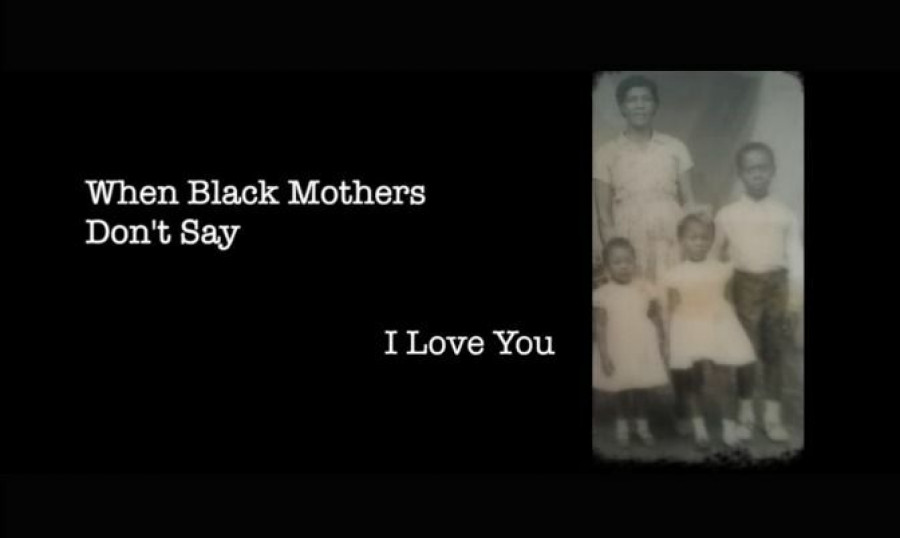
 By
By 




